
CAPITOL RECAP: Governor’s office unveils energy overhaul bill
By Capitol News Illinois
SPRINGFIELD – The governor’s office unveiled a 900-page energy overhaul bill Wednesday, accelerating a yearslong process which advocates hope will end in a comprehensive clean energy platform as the session nears its final month.
The stated goal of the bill is to drive Illinois to 100 percent “clean” energy by 2050. That, Deputy Gov. Christian Mitchell said in an interview Wednesday, would include nuclear power as a major contributor. Another goal is to bring Illinois to 40 percent of its utility scale energy produced by renewables, such as wind and solar, by 2030. Right now, that number is around 8 percent.
The bill contains some of the provisions put forth in other legislation, raising the rate cap on ratepayer bills for renewable projects from about 2 percent to 3.75 percent; ending formulaic rate increases for utilities immediately; and prohibiting natural gas companies from assessing a surcharge on bills starting January 2022.
It also requires an annual outside audit of Exelon Corporation — the parent company of scandal-ridden Commonwealth Edison — while providing about $70 million in subsidies each year for the next five years to two struggling nuclear plants owned by the company, one in Byron, one in Dresden. The subsidies are needed to ensure reliability of the state’s energy grid as nuclear becomes a larger part of the state’s energy mix, advocates say.
And it puts a price of $8 per ton on carbon emissions for fossil fuel providers such as coal-fired power plants and natural gas plants. That fee would escalate each year by 3 percent.
Mitchell, who is the lead energy negotiator in the Pritzker administration, said revenues derived from the carbon price are expected to generate between $400-$500 million annually.
About 40 percent of that would go to equity measures written into the bill, Mitchell said, while some of it would go to the Illinois Environmental Protection Agency for its operations, and some would go to bolstering the Illinois Commerce Commission on some of its new regulatory duties. A portion would also go to stabilize the state’s budget.
Sen. Michael Hastings, D-Frankfort, chair of a key energy committee in the state Senate, said in a phone call Wednesday the governor’s plan will spur a lot of discussion in the final month of session, and he said it contains some good, and some areas of concern.
For starters, Hastings said, the numbers behind a key audit of Exelon that were used to justify the subsidies remain redacted. Hastings, who is a supporter of a union-backed bill aimed at keeping the nuclear plants viable and ensuring union participation in the clean energy market, said any decision on subsidizing Exelon should not be decided until the utility and the governor’s office agree to release an unredacted copy of the audit – which cost taxpayers $208,000 and was commissioned by the governor’s office through Synapse Energy Economics Inc.
* * *
COLLEGE GAMBLING: State lawmakers are considering a number of changes to Illinois gambling laws, including a measure that would lift the prohibition on gambling on in-state colleges and universities.
Rep. Mike Zalewski, a Riverside Democrat who was one of the lead architects of the gambling expansion bill in 2019 which legalized sports betting, said the prohibition on betting on Illinois collegiate sports teams was put into the law “at the behest of the universities.”
But as sports betting becomes widespread in neighboring states, it would be easy for an Illinois gambler to travel to place a bet on an Illinois team, Zalewski said. He said the prohibition “reduces our marketplace and makes us less of a robust marketplace than we otherwise would be.”
University of Illinois Athletic Director Josh Whitman opposed the bill, noting it was a “major concern” that U of I athletes may be in direct contact with someone who is betting on them.
“They’re living amongst the people who are betting on them, which is strange to know that somebody who lives in the dorm room right next door might be betting on them, somebody who was involved with one of our teams as a manager, video person, might be betting on them,” he said.
He also said college athletes often “live on their phone” and receive social media hate commentary that “in some cases directly references gambling losses.” Legalizing betting on Illinois colleges would make it worse, he said.
Zalewski said his amendment to House Bill 849 allows universities to petition the Illinois Gaming Board to suspend wagering on in-state universities or colleges for a period of up to six months if “the college or university has a reasonable belief that a player of that team has been influenced, has suffered mental or physical injury, or has otherwise been affected by a wager.”
Whitman said that he appreciated the amendment, but it would be insufficient in remedying such an incident.
Trevor Hayes, head of government relations at the sports gambling company William Hill, said Illinoisans today can bet on Illinois college teams from within the state, but that action would have to be taken on illegal, unregulated, untaxed websites.
* * *
HEALTH CARE REFORM: Gov. JB Pritzker declared health care “a right, not a privilege” Tuesday, April 27, as he signed a massive reform bill backed by the Illinois Legislative Black Caucus, the last of four policy pillars introduced as part of an anti-racism agenda last year.
The “Illinois Health Care and Human Services Reform Act,” contained in House Bill 158, is a 224-page bill made up of over a dozen provisions meant to end inequities in the Illinois health care system on the basis of race, income and other socioeconomic factors.
Among other provisions, the bill creates two Medicaid-based commissions, one to review the state’s managed care programs delivering Medicaid services and one to direct Medicaid contracts towards businesses owned and operated by minorities, women and residents with disabilities.
It also places a moratorium on hospital closures, enhances state training standards for facilities caring for dementia patients and implements implicit bias training for medical staffs.
The measure also focuses on identifying the causes of violence – creating the Underlying Causes of Crime and Violence Study Act – which will seek to create a process to identify “high violence communities” and prioritize state dollars to address the underlying causes, according to a news release from the governor’s office.
A new certified class of medical professional, known as a “Community Health Worker,” is created under the new law to act as a coordinating bridge between social programs and health care services.
Republicans mounted opposition to the legislation on the basis of its price tag, which they have cited as being anywhere between $5 billion and $12 billion to implement fully.
Democrats have disputed those estimates while maintaining that the benefit of improving health care outcomes for Illinoisans would be worth the cost.
A Republican request for a fiscal note was ruled inapplicable by Democratic leadership during House debate on the bill.
A statement from the House Republican caucus issued Tuesday criticized Pritzker for “signing a bill that will cost billions of dollars of fantasy money we just don’t have.”
When asked about the costs of the health care reform bill Tuesday, Pritzker described the bill as “reasonable” and accused Republican opponents of “exaggerating” the actual cost.
A majority of the act’s provisions are subject to state appropriation, meaning the General Assembly will need to vote in the future to allocate the funding needed for each measure, despite the law being effective immediately upon Pritzker’s signature Tuesday.
One Republican Senator, John Curran of Downers Grove, attended the Tuesday news conference with members of the Black Caucus, the health care community and the governor.
* * *
VACCINE UPDATE: Public health officials gave an update on the status of the state’s vaccination efforts Tuesday, April 27, as the number of vaccines administered in Illinois topped 9 million.
Speaking in a joint hearing of the House Human Services and Health Care committees Tuesday, Illinois Department of Public Health Director Dr. Ngozi Ezike said the state is “closing gaps” in providing COVID-19 vaccine doses to underserved populations and anyone in the state who wishes to receive one.
Ezike said the state is continuing to reach all populations through strategically-placed vaccination sites as well as regular mobile missions conducted by members of the Illinois National Guard.
As of Wednesday, Illinois had administered just over 9 million vaccine doses, while just over 30 percent of the state’s population has been fully vaccinated against COVID-19.
Over half of the state’s eligible population has received at least one dose. A total of 106,173 COVID-19 vaccine doses were administered across the state Tuesday.
But Ezike told lawmakers the state’s health communication can only go so far in educating the public. She said individuals who have gotten the vaccine, along with trusted members of the community such as medical providers and religious leaders, should remind those they know to get vaccinated.
Andrew Friend, deputy director at IDPH’s office of preparedness and response, added that as more of the state’s population receives the vaccine, the state would begin to shift from a “mass vaccination” approach to “convenience vaccination” strategy.
Ezike and Friend said this next phase could include allowing residents to get vaccinated by their primary care physician rather than needing to visit a mass vaccination site or pharmacy provider, and allowing walk-in vaccinations at all vaccination sites.
* * *
PRITZKER CALLED OUT: Illinois Senate Republicans on Wednesday harshly criticized Democratic Gov. JB Pritzker, accusing him of breaking a campaign pledge to support an independent commission to redraw congressional and legislative district maps.
“What I want to say is, the gerrymandering train is on the tracks,” Senate Republican Leader Dan McConchie, of Hawthorn Woods, said during a news conference. “It is moving ahead and Gov. Pritzker has considerable power as the chief executive to make his candidate promise a reality.”
Their comments came one day after Pritzker, speaking at a news conference, appeared to back away from his 2018 campaign pledge to veto any redistricting maps drawn by legislators, party leaders or their staffs.
“I will pledge to veto,” then-candidate Pritzker was quoted as saying. “We should amend the constitution to create an independent commission to draw legislative maps. But in the meantime, I would urge Democrats and Republicans to agree to an independent commission to handle creating a new legislative map.”
But when asked by a reporter Tuesday whether he still intends to honor that pledge, Pritzker appeared to backpedal.
“As I’ve said, I will veto an unfair map,” Pritzker said Tuesday. “I’ve also said that in order for us to have an independent commission, we needed to have a constitutional amendment, something that would actually change the way the process operates today in the constitution. That did not happen.”
Both the U.S. and Illinois constitutions require state lawmakers to redraw congressional and legislative district maps every 10 years following the decennial census to account for population shifts and to ensure equal representation in Congress and the General Assembly.
The process is often highly political because the majority party has the ability to use demographic data and voting histories to draw maps that favor their candidates and work to the disadvantage of minority party candidates.
The idea of handing over that authority to an independent, nonpartisan commission has enjoyed bipartisan support in the past, and public opinion surveys have shown it also has broad popular support.
But legislative Democrats, who hold super majorities in both chambers of the General Assembly, have been moving ahead with the process this year in an effort to meet the state constitution’s June 30 deadline, after which they would lose their partisan advantage in the process.
* * *
MANUFACTURING PROGRAMS: Gov. JB Pritzker announced Wednesday, April 28, the state was distributing funds to two downstate Illinois community colleges for electric vehicle manufacturing and renewable energy generation training programs.
Pritzker made the announcement at Heartland Community College in Normal, where one of the new programs will launch.
“I’m committed to building an Illinois that is focused on high quality skilled labor and developing that so that we can maintain our manufacturing prowess for generations to come,” Pritzker said at the news conference. “And so that our residents are ready for the millions of new manufacturing jobs arising over the next decade.”
HCC and Southwestern Illinois College in Belleville will begin enrolling students in their new specialized manufacturing programs for the fall semester.
HCC is partnering with electric vehicle automaker Rivian to establish a training academy for students who want to join the manufacturing industry. Along with state funds, a $1.5 million private employer commitment will allow HCC to develop a new auto shop that will be used exclusively for training in how to build electric vehicles.
The program will start with about a dozen students and be fully operational by 2023.
SWIC will also add to its existing manufacturing training facilities to offer industrial electricity and welding manufacturing training. This facility is expected to begin operation by fall 2022.
The programs are funded through the bipartisan Rebuild Illinois capital plan that passed in the governor’s first year in 2019.
The Illinois Department of Commerce and Economic Opportunity said that the funds will be split between the two programs, with each college receiving $7.5 million to launch their programs. The state funds will also be met with $4.95 million in matching commitments for capital projects, officials said.
* * *
CULLERTON TRIAL DATE: State Sen. Tom Cullerton, who was indicted in 2019 on charges of embezzlement, is set to go to trial in February next year, a federal judge said on Tuesday.
Cullerton, a Democrat from Villa Park, is scheduled to be tried in the U.S. District Court in Chicago, starting on Feb. 23, 2022.
The latest development in Cullerton’s criminal case came during a court hearing Tuesday morning before Judge Robert Gettleman. Cullerton’s federal trial was previously set for July 2020 but that date was scrapped when the pandemic halted jury trials.
The indictment, issued in August 2019, charges Cullerton with one count of conspiracy to embezzle from a labor union and employee benefit plans, 39 counts of embezzlement from a labor union, and one count of making false statements in a health care matter. He pleaded not guilty to all of the charges.
Cullerton is accused of performing little or no work in his role as a union organizer for Teamsters Local Union 734, where he was a member before being elected to the General Assembly in 2012.
During his first term in office, in March 2013, Cullerton was hired as a union organizer, a full-time position that came with health and pension benefits.
He was hired to the union position by John Coli, the former union leader who agreed to work with federal prosecutors as part of a plea deal. Coli pleaded guilty in federal court to extorting a film studio in Chicago.
Cullerton’s indictment alleges the senator embezzled $274,066 from the union between January 2013 and February 2016 — $188,320 in salary and allowances; $64,068 in medical and pension plan contributions; and $21,678 in “reimbursed medical claims.”
According to the indictment, Cullerton also received holiday bonuses for three years and collected about $60,000 from Jan. 15, 2015, through the end of January 2016.
Cullerton reported the additional income in a statement of economic interests form with the secretary of state’s office, as required by Illinois law, in 2013 and 2014 but not in 2015 or 2016, according to the indictment.
Through his attorneys, Cullerton has denied wrongdoing.
Cullerton was reelected to his third state Senate term in 2018. His term ends in 2023.
* * *
ILLINOIS LOSES CONGRESSIONAL SEAT: The U.S. Census Bureau announced Monday, April 26, Illinois will lose a seat in Congress based on the results of the 2020 census.
Illinois will move from 18 to 17 seats in the U.S. House, an expected result after some advocates had warned that an undercount could lead to the loss of two seats. The state has lost at least one congressional representative in eight of the last 9 decades after peaking at 27 seats in 1910 and remaining there until the 1940 census.
Six other states will also lose a seat, including California, Michigan, Ohio, West Virginia, Pennsylvania and New York.
Illinois, Mississippi and West Virginia are the only three states to lose population over the past decade, Census Bureau officials said Monday. It’s the first time the Census Bureau logged a decade-over-decade population loss in the state.
According to data released Monday, the state has a total population of just over 12.8 million people, a drop of 0.1 percent when compared to 2010.
While the population loss was not as pronounced as some had originally anticipated, Gov. JB Pritzker said in an unrelated news conference Monday that he was “concerned” about outmigration in the state, which he said has been taking place “for more than a decade.”
“We’ve got to turn that around,” Pritzker said. “That’s something that unfortunately before I became governor was a bit set in clay, if not stone. And now, we’re working very hard to make sure we’re going the right direction.”
Pritzker attributed the population loss primarily to college students who choose not to attend school in the state.
* * *
COVID NAVIGATOR PROGRAM: Gov. JB Pritzker announced a new state program Monday, April 26, that aims to increase vaccine access in low-income, vulnerable communities and to connect residents across the state to COVID-19 assistance programs for transportation, food, utilities or other resources.
The COVID-19 Pandemic Health Navigator Program serves areas of the state outside of Chicago and Cook County, and is funded by $60 million in grants from the Illinois Department of Public Health to regional organizations.
“This program is about one-on-one connections involving established, trusted members of the community, whether that’s a federally qualified health center or a church or an LGBTQ+ center, a senior center or a local branch of the NAACP,” Pritzker said at a news conference at VNA Health Care in Aurora.
The program is administered through the Illinois Public Health Association, the Illinois Primary Health Care Association and OSF Healthcare System and is already in operation in communities across the state, the governor’s office said in a news release. Information on how to connect with the program can be found at www.HelpGuideThrive.org.
The program’s soft launch earlier this year began with efforts to supply community-based organizations and federally qualified health centers with funding, training and resources to provide local health care support to Illinois residents, according to a state news release.
To date, 65 community-based organizations and 23 federally qualified health centers are participating in the program, with more than 400 community health workers and regional supervisors employed thus far, according to the release.
* * *
COVID-19 UPDATE: Gov. JB Pritzker said the Monday, April 26, the state is in an “interim period” where vaccine demand and supply are about the same, and supply may soon exceed demand. Because of this, vaccine supplies are being targeted to areas with greater demand.
A total of more than 8.86 million vaccine doses have been administered in Illinois as of Sunday evening, out of more than 10.91 million doses received by the state, according to the Illinois Department of Public Health.
On Sunday, 50,512 doses were administered in Illinois, with the seven-day rolling average of vaccines administered daily at 105,873 doses – down from an average of more than 125,000 one week ago.
More than 3.79 million Illinoisans have been fully vaccinated, or about 29.75 percent of the state population.
The state reported 2,137 confirmed or probable cases of COVID-19 Monday out of 49,236 tests conducted. The rolling seven-day statewide case positivity rate was 3.5 percent Monday for the third straight day.
That’s down one-tenth of a percentage point from Friday, three-tenths of a point from April 22, and nearly a full point from its recent peak of 4.4 percent on April 13.
As of Sunday night, 251 COVID-19-positive individuals were on ventilators, with the weekly average ventilator use about 16 percent higher from Monday to Sunday than the one-week period prior. There were 506 COVID-19 patients using intensive care unit beds as of Sunday night, with the weekly average use about 4.5 percent higher from the week prior.
There were 2,083 hospital beds in use on Sunday night, while the weekly hospital bed usage increased about 1.3 percent from the week before, which was the lowest weekly rate of increase in the past five weeks.
The state reported 10 additional deaths due to COVID-19 related illness on Monday, bringing the statewide death toll to 21,836 individuals.
* * *
REVENUE DISCUSSIONS: Members of an Illinois Senate committee on Friday, April 23, sparred with officials from Gov. JB Pritzker’s administration Friday in a hearing on tax changes proposed by the governor in an effort to balance the state’s budget for the 2022 fiscal year.
In his budget proposal released in February, Pritzker outlined nine changes to the corporate tax code meant to generate $932 million in revenue for the state in order to maintain a balanced budget while keeping income taxes and government spending flat for FY 22, which begins July 1.
Illinois Department of Revenue Director David Harris told lawmakers there would be an estimated $120 million surplus at the end of FY 22 if the governor’s budget passes.
The largest change in terms of building revenue would be a cap on how much corporations can deduct from their taxes based on their losses in a given year. Under current tax law a corporation can take their net operating loss and reduce how much of their income is taxable in future years by that amount.
Pritzker’s proposal would cap this deduction to $100,000 annually for the next three years, which IDOR estimated would save the state $314 million in FY 22.
Harris told lawmakers that the state’s 2,800 corporate taxpayers deducted $6.4 billion in net operating losses from their taxes in 2018. Just 84 of those corporate taxpayers that year accounted for $3.5 billion in operating losses.
While the Pritzker administration has referred to the changes as “closing corporate tax loopholes,” three of the nine tax codes being removed or amended as part of the proposed budget were put into place by Pritzker as part of budget negotiations with state Republicans in 2019.
A phased repeal of the corporate franchise tax, an addition to what properties qualify for the state’s machinery and equipment sales tax exemption, and a tax deduction for creating new construction jobs in the state were added to the budget proposal put forth by Pritzker in 2019 to secure Republican support.
All three provisions would be delayed or removed in the governor’s plan in order to generate approximately $102 million in savings for FY 22
Sen. Chapin Rose, R-Mahomet, questioned Governor’s Office of Management and Budget Director Alexis Sturm on why a program passed with bipartisan support needed to be cut if the state expected a surplus.
Democratic Sen. Linda Holmes, of Aurora, echoed his concerns.
According to Sturm, the state’s short-term fiscal situation looked positive due to loans and an influx of funds from the federal government as part of several coronavirus relief packages passed in the last year. But for long-term stability, there were hard choices that had to be made regarding the tax code.
* * *
BILL ACTION: The state Senate and House passed more than 750 bills last week, addressing isolated timeouts in schools, youth vaping, teaching Muslim history, the commemoration of Juneteenth and automatic voter registration in prisons, among other topics.
Friday was the deadline for the General Assembly to pass bills out of each chamber, for consideration in the other chamber. The General Assembly’s session is scheduled to end May 31.
Capitol News Illinois has summarized below a few of the notable bills that passed one chamber last week. To become law – among other pathways – the bills will still need to receive approval from the other chamber and the governor.
Senate Bill 512: creates the Youth Vaping Act, which prohibits the use of certain harmful additives in electronic cigarettes — including vitamin E acetate — that are associated with lung illness.
It also would ban the use of deceptive advertising that encourages the use of electronic cigarettes, or vaping, to quit tobacco products, unless the product has U.S. Food and Drug Administration approval to market for such use.
It also amends the Prevention of Cigarette Sales to Persons under 21 Years of Age Act to include electronic cigarettes. The bill, sponsored by Lake Forest Democrat Julie Morrison, passed unanimously, 57-0.
Senate Bill 134: creates a Local Journalism Task Force to study areas underserved by local journalism in Illinois and review strategies to improve local news access and public policy solutions to develop more sustainable business models for local media outlets.
The task force would consist of members of the General Assembly, a member appointed by the governor, members from local journalism schools and members representing press groups, including the Illinois Legislative Correspondents Association and the Illinois Broadcasters Association. The bill is sponsored by Sen. Steve Stadelman, a Rockford Democrat who was a television reporter and anchor before joining the General Assembly. It passed 57-0.
Senate Bill 564: amends the Illinois School Code to require that history education taught in public schools in 8th grade include the study of the contributions made by Muslims and Muslim Americans to society.
It would also establish Jan. 17 as a holiday commemorating the birthday of Muhammad Ali, one of the greatest American boxers and a convert to Islam. The bipartisan bill, sponsored by Naperville Democrat Laura Ellman, passed 46-3.
Senate Bill 2129: amends the state criminal code to allow a county state’s attorney to petition the court to have a person’s prison sentence reduced “if the original sentence no longer advances the interests of justice,” according to the bill.
In its decision to resentence, the court can consider the person’s disciplinary record while in prison, and whether age, time served or diminished physical condition have reduced the person’s risk for future violence, among other factors.
It preserves the rights of crime victims, as afforded under the Rights of Crime Victims and Witnesses Act. Sponsored by Chicago Democrat Sen. Robert Peters, the bill passed narrowly by a vote of 31-17.
House Bill 219: requires the State Board of Education to create specific benchmarks for schools to reduce the use of timeout, isolated timeout and physical restraints, with the goal of eliminating the practices within three years.
HB 219 and similar bills to reduce and end isolated timeouts in K-12 public schools were filed in the previous General Assembly in response to an investigation by ProPublica and the Chicago Tribune. The investigation found elementary students were being detained in “isolation rooms” for minor infractions, and teachers’ use of these practices often violated the law.
The bill has received bipartisan support and passed out of the House unanimously, 113-0. Rep. Jonathan Carroll, a Northbrook Democrat who sponsored the bill, said HB 219 is the most important bill he has sponsored during his time in the General Assembly. A similar measure passed in the Senate.
House Bill 2928: creates the Relieve College Costs Pilot Program Act to establish a pilot program for a new four-year bachelor’s degree pathway called the Fundamental Issues and Texts Humanities Degree that has total tuition costs capped at $20,000.
Under the bill, a program director for the new pilot program would develop the curriculum for one high school, one community college and one university that would include foundational texts from western civilization and the Enlightenment. The bipartisan bill, sponsored by Elmhurst Republican Deanne Mazzochi, passed 112-0.
House Bill 3922: would make June 19 an observed state holiday, Juneteenth National Freedom Day, to commemorate the day in 1865 when Union troops arrived in Galveston Bay, Texas, to free more than 250,000 enslaved black people.
A 2003 state law recognized Juneteenth National Freedom Day on the third Saturday in June but did not establish it as a state holiday. The bipartisan bill, sponsored by Chicago Democrat La Shawn Ford, passed 99-0. A similar bill passed in the state Senate.
House Bill 3235: would require the Illinois Department of Corrections to provide individuals with information about obtaining a voter identification card and information about voter registration at least 45 days before being released from prison.
It would also allow the Department of Corrections to contract with the state Board of Elections to participate in the automatic voter registration program and be designated as an automatic voter registration agency. The bill, sponsored by Chicago Democrat Camille Lilly, passed by a vote of 72-42.
* * *
TELEHEALTH SERVICES: The Illinois House passed a bill Friday, April 23, which would make COVID-19-related expansions to telehealth services permanent through state statute.
House Bill 3498, introduced by Rep. Deb Conroy, D-Villa Park, aims to reduce barriers in access to virtual and telehealth services and would bring standards for virtual care in line with physical health services.
Conroy said that access to telehealth, which became a necessity for many Illinoisians during the outset of the COVID-19 pandemic last year, would bring lasting benefits in managing chronic health conditions.
Additionally, Conroy said telehealth legislation passed by the state and federal government last year has allowed health care providers to “make significant, rapid investment in telehealth technology.”
The bill, which is supported by a coalition of over 35 health care providers, institutions and advocacy groups from around the state, prohibits geographic or facility restrictions on telehealth services and allows patients to be treated via telehealth in their home.
The bill also protects patients from being charged any additional fees by insurance providers for accessing telehealth services. Patients will also not be required to prove any sort hardship or access barrier to receive telehealth services.
According to information from the Coalition to Protect Telehealth Services, medical providers such as the University of Chicago Medicine “provided very few” services via phone or video prior to the pandemic, but between March and July of last year, the group provided nearly 30,000 telephone visits and over 60,000 audio-video visits.
Danny Chun, spokesperson for the Coalition to Protect Telehealth Services, said Gov. JB Pritzker has issued several successive 90-day protections for telehealth services, but he stressed that protecting services through state statute would be necessary to allow providers to continue to provide care through telehealth.
Capitol News Illinois is a nonprofit, nonpartisan news service covering state government and distributed to more than 400 newspapers statewide. It is funded primarily by the Illinois Press Foundation and the Robert R. McCormick Foundation.
Local News
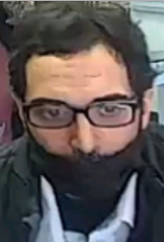
Hunt man who tried to rob Chase Bank
Spread the love. FBI looking for tips from public . From staff reports FBI officials are appealing to the public for help in finding a man who attempted to rob a Southwest Side bank branch. The bandit tried to rob the Chase Bank branch at 5687 S. Archer (just west of Laramie) at about 11…
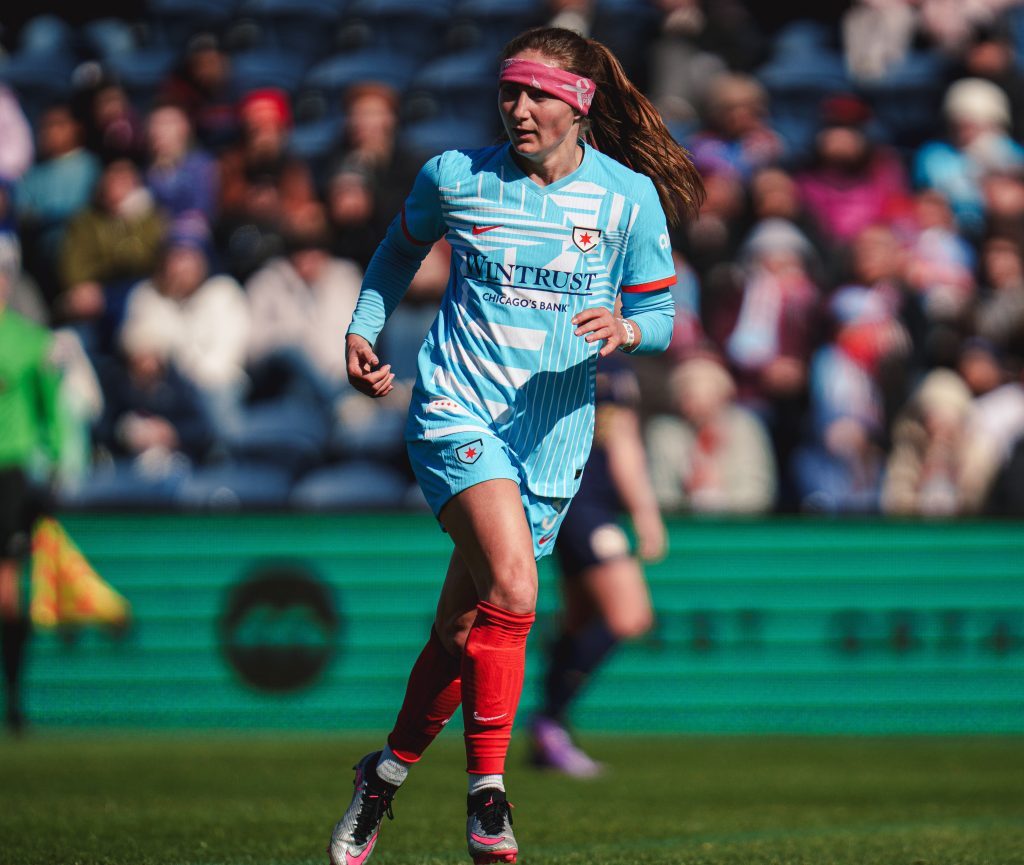
Chicago Red Stars and Bay FC to play at Wrigley Field
Spread the loveBy Jeff Vorva Correspondent Chicago Red Stars forward Ally Schlegel loves Wrigley Field. “I adored Wrigley the second I went to my first Cubs game,” Schlegel said. “I fell in love with it thinking it was the perfect sporting experience with how they built it up down there.” She will go from a…

Trinity Christian College names new hoops coaches
Spread the loveBy Jeff Vorva Correspondent Trinity Christian officials were busy on April 11 ushering in new eras for its basketball programs. Trolls Athletic Director Wendy Reid announced that Jordan Mast is taking over the men’s basketball program, while Jasmine Porter has been named women’s hoops coach. Mast comes to the school in Palos Heights…

Reavis baseball coach and Hall of Famer Don Erickson to retire after season
Spread the loveBy Jeff Vorva Correspondent A deal is a deal. Longtime Reavis baseball coach Don Erickson has said he would retire after his son, Sam, graduates from high school, so he can watch Sam play in college. Erickson doesn’t get to many of his son’s high school games because Sam plays at Downers Grove…
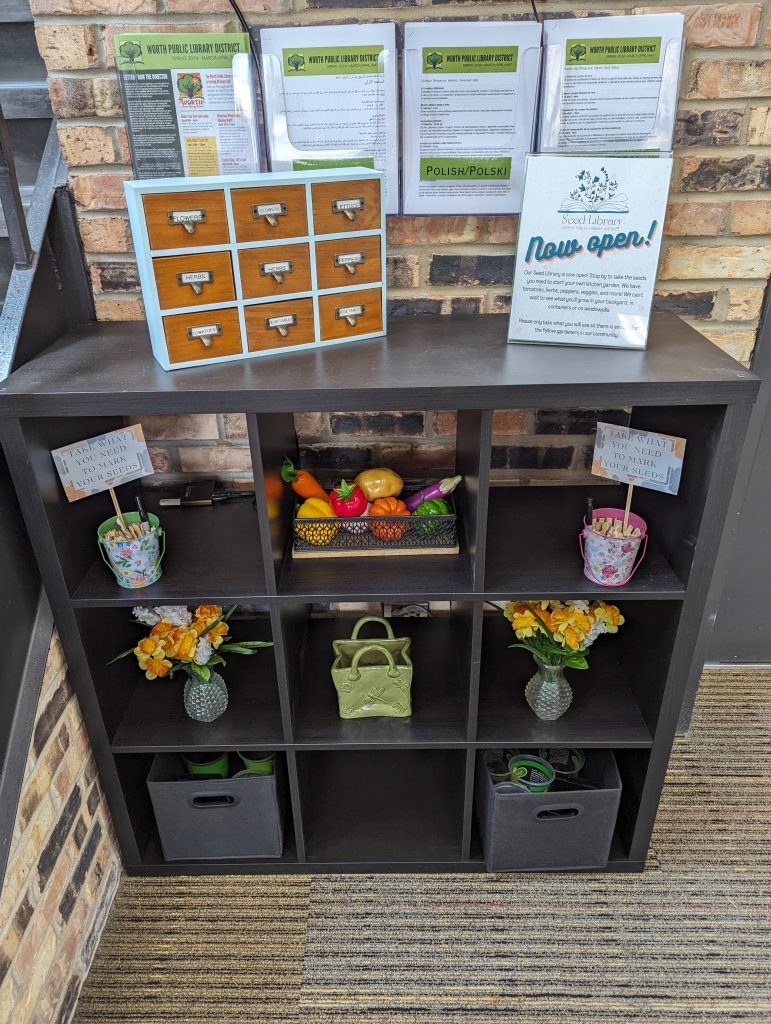
Worth Library offers seeds for free
Spread the loveBy Kelly White A seed library collects and stores seeds and shares them with members of the community for free. Similar to a normal library, gardeners borrow seeds from the seed library at planting time. At the end of the growing seasons, they save seeds from the plants and return a portion of…
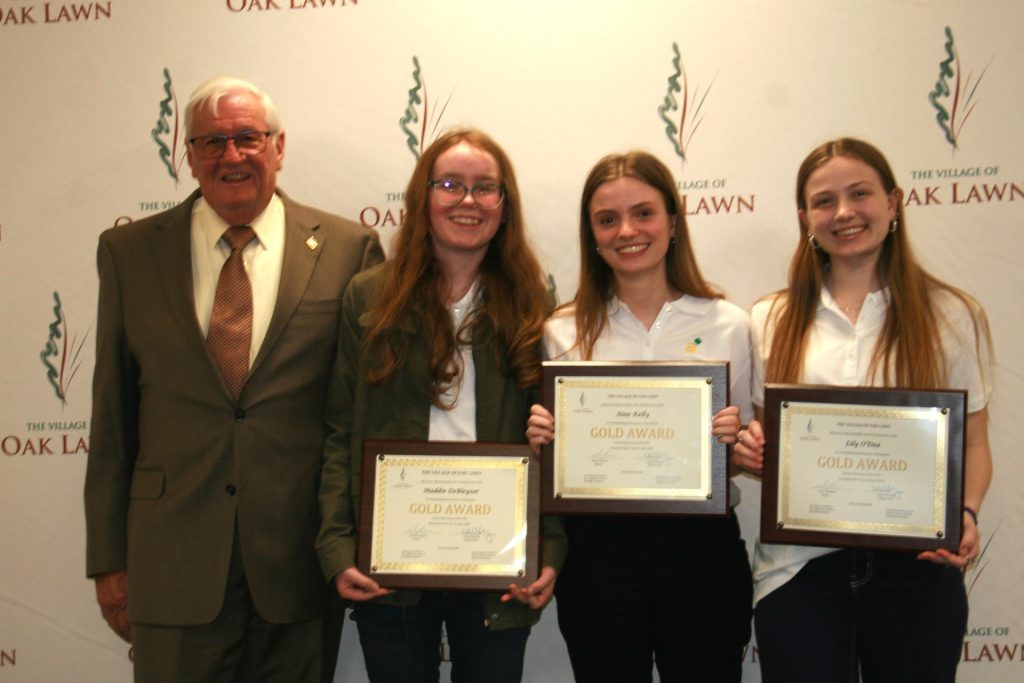
Paisans Pizza eyes May opening in Oak Lawn
Spread the loveBy Joe Boyle Paisans Pizzeria is a step closer to opening in Oak Lawn with the approval of a liquor license for the establishment that will be part of the Stony Creek Promenade. Plans for the restaurant were originally approved at an Oak Lawn Village Board meeting in March of 2022. Tom Phelan,…
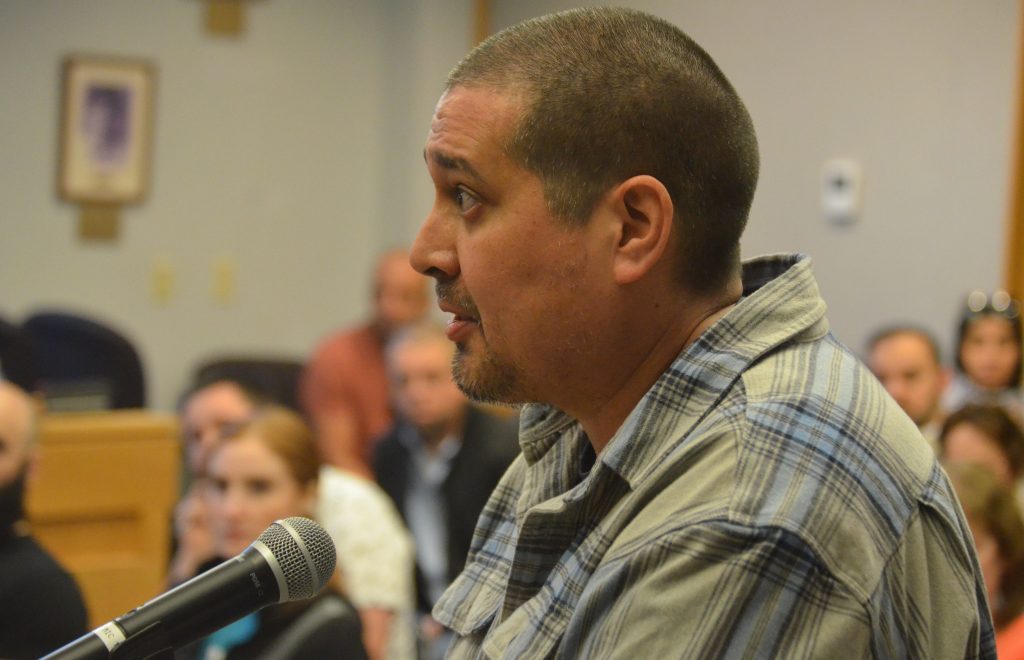
Palos Park residents, mosque reps discuss noise issues at council meeting
Spread the loveBy Jeff Vorva What could have been an explosive situation was actually quite civil. Some Palos Park residents were angry about loud activity and behavior of some members of the Palos Islamic Center the past two years and sounded off at the April 8 village council meeting. Fresh on their minds was noise…
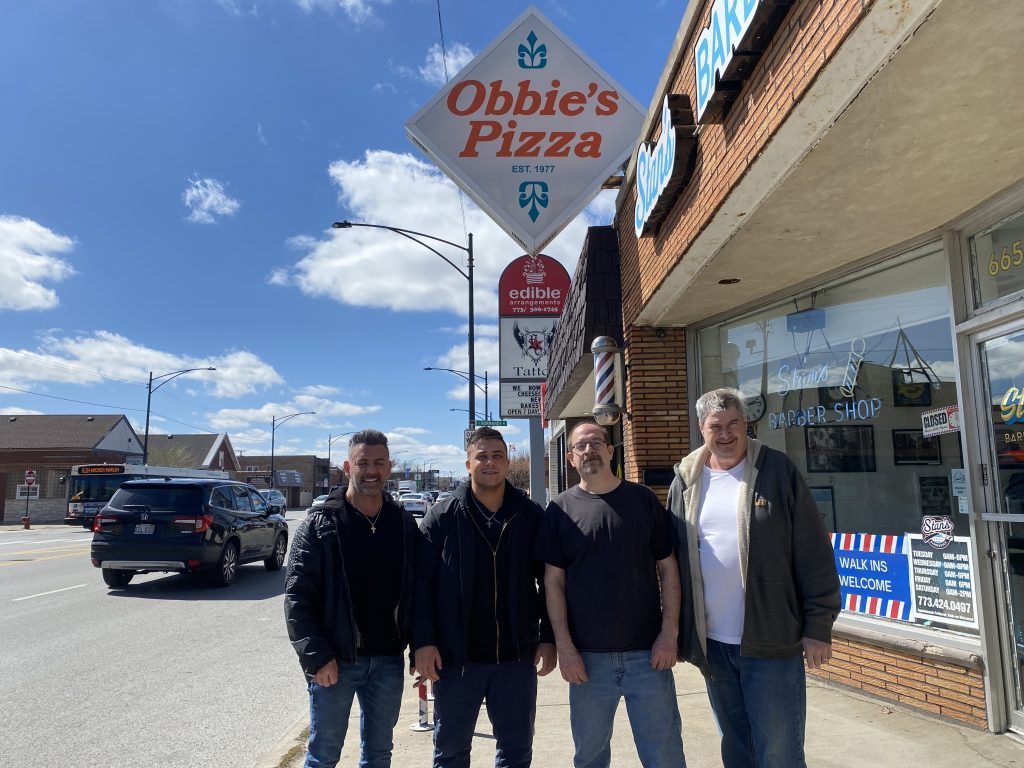
Comings & Goings: Obbie’s Pizza to stay ‘unique and delicious’
Spread the loveBy Tim Hadac Archer Avenue’s long-time king of pizzerias will continue to rule. Same recipes at Obbie’s Pizza, 6654 W. Archer. Same pizza and ingredients. Same pasta, broasted chicken, shrimp, perch, Italian beef/sausage/meatball sandwiches, sides and pop. Same seasoned, Middleby Marshall pizza oven built in 1947—the type of pizza oven every restaurant owner…
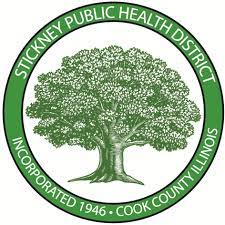
Stickney Public Health confirms measles case in Bedford Park
Spread the loveFrom staff reports The Stickney Public Health District has confirmed that a person with measles related to the ongoing situation in the City of Chicago was at the Walmart Supercenter at 7050 S. Cicero Ave. in Bedford Park on Friday, March 22, roughly between the hours of 2 and 4 p.m. Anybody who…
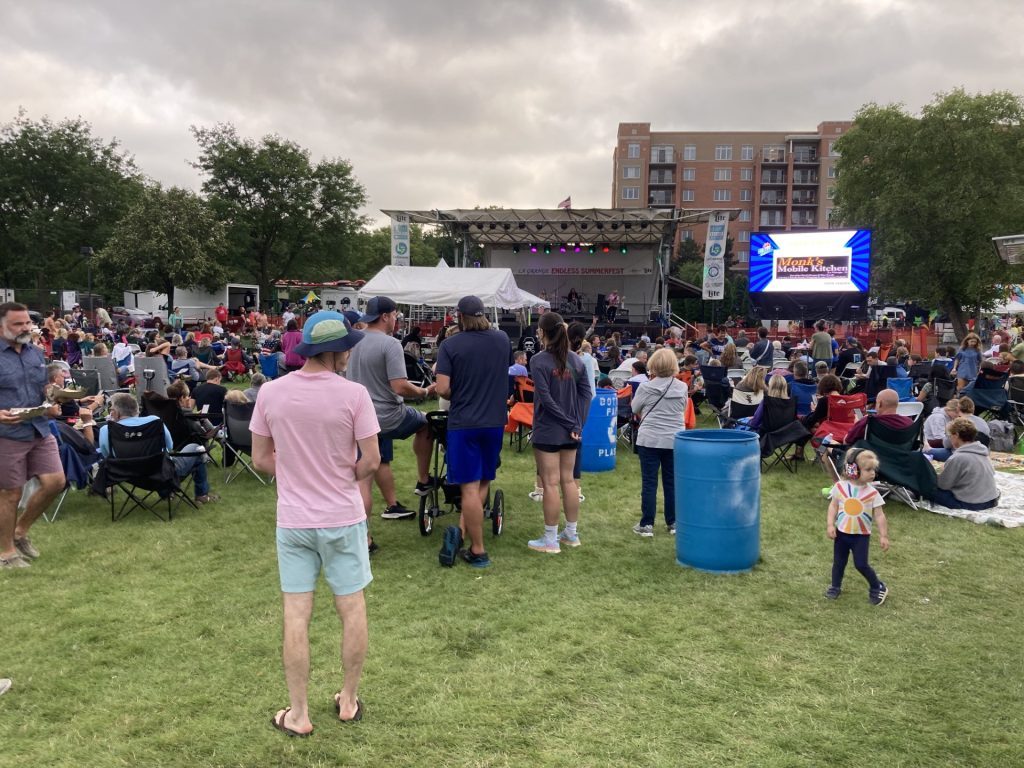
La Grange cancels Endless Summerfest over higher costs
Spread the loveBy Steve Metsch It turns out the summer is not endless, at least not in La Grange. Endless Summerfest, a three-day event held the first weekend in August at Gordon Park for many years, will not be held this year. The cancelation was announced Tuesday in a joint new release from the La…
Neighbors
Sorry, we couldn't find any posts. Please try a different search.





